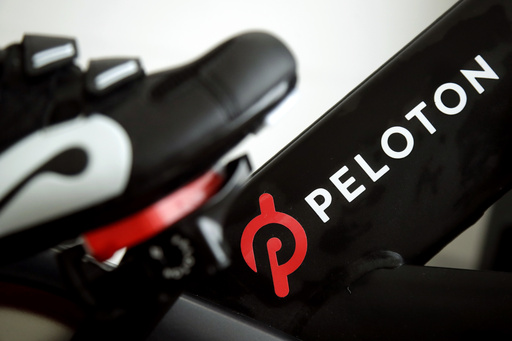
Peloton is set to bring its high-end stationary bike to Costco this holiday season in an effort to increase its customer reach amidst ongoing struggles in the connected fitness market.
The Peloton Bike+, which provides users with access to online exercise classes and a communal workout experience, will be available online and in 300 Costco locations from November through mid-February, as announced by both companies recently.
In Costco stores, the bike will retail for $1,999, requiring consumers to assemble it themselves. This offers a savings of approximately $500 compared to purchasing the bike directly from Peloton’s website, where the price includes delivery and setup. Additionally, Costco will offer the Peloton Bike+ online at a price of $2,199, which includes delivery services.
Dion Camp Sanders, Peloton’s Chief Emerging Business Officer, commented on the partnership, stating, “The Costco brand is incredibly powerful and respected in the U.S. and abroad.
Costco members know they are shopping for high-quality products from trusted brands with the best value.”
This collaboration with Costco represents Peloton’s strategy to make its products more readily available to a broader audience, according to Angeli Gianchandani, who teaches at New York University’s School of Professional Studies.
Gianchandani further explained, “Costco might be known for low cost, but at the same time, they don’t shy away from carrying high-end products,” highlighting how this aligns with Costco’s strategy to appeal to an affluent demographic valuing quality and value.
Initially marketed as a luxury brand, Peloton is undergoing a rebranding process to position itself as more accessible following a difficult period marked by declining sales and a falling stock price. In August 2022, the company expanded its sales channels to include Amazon in the U.S.
The Peloton Bike+ features advanced upgrades from the original model, such as a rotating touchscreen and an automatic resistance adjustment based on instructor recommendations. Users looking to engage in regular classes must purchase an all-access membership priced at $44 per month, which also grants access to various fitness classes including meditation, strength training, and yoga.
Experts suggest that Peloton’s decision to partner with Costco is not just influenced by its massive retail presence but also the purchasing power and demographics of Costco’s patrons. Kimberly Whitler, an associate professor at the University of Virginia, remarked that the move appears aimed at attracting younger, affluent consumers that fit Peloton’s target market.
Costco’s Chief Financial Officer reported that nearly half of the retailer’s new members this year are under 40, indicating a shift in consumer base that Peloton likely hopes to leverage.
Peloton experienced a significant surge in demand for its bikes during the early stages of the COVID-19 pandemic, as gym closures led many individuals to opt for home fitness solutions. By late 2020, the company’s share price surpassed $150.
However, this growth proved to be short-lived as pandemic restrictions relaxed, leading to a downturn in sales. Compounding the situation were pivotal recalls of products, including approximately 125,000 treadmills in 2021 connected to a tragic incident involving a child’s death, as well as a recall of over 2 million bikes due to safety concerns with a faulty seat post.
In light of these issues, Peloton’s stock has been on a downward trajectory, hovering below $7 per share throughout 2024. The company has made significant operational cuts, laying off 400 employees in May, and saw the resignation of CEO Barry McCarthy. In addition to expanding its retail offerings, Peloton is also selling refurbished bikes, with costs set at $1,145 for a standard model and $1,995 for a used Bike+.
